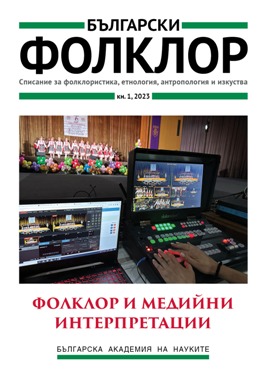Интернет мемовете като част от политическата комуникация и участие (Наблюдения върху словашката онлайн платформа Zomri)
Internet Memes as Part of Political Communication and Participation on the Example of the Slovak Platform Zomri
Author(s): Eva ŠipöczováSubject(s): Politics / Political Sciences, Politics, History, Anthropology, Social Sciences, Language and Literature Studies, Fine Arts / Performing Arts, Cultural history, Psychology, Semiotics / Semiology, Customs / Folklore, Media studies, Visual Arts, Theoretical Linguistics, Applied Linguistics, Political Theory, Civil Society, Governance, Communication studies, Sociology, History of ideas, Political history, Social history, Recent History (1900 till today), Semantics, Pragmatics, Psycholinguistics, Sociolinguistics, Government/Political systems, Electoral systems, Welfare systems, Political behavior, Political psychology, Politics and communication, Politics and society, Cultural Anthropology / Ethnology, Culture and social structure , Theory of Communication, Social psychology and group interaction, Social development, Management and complex organizations, Crowd Psychology: Mass phenomena and political interactions, Policy, planning, forecast and speculation, Sociology of Culture, Present Times (2010 - today), EU-Accession / EU-DEvelopment, Social Norms / Social Control, Sociology of Politics, Sociology of Art, Politics and Identity, Identity of Collectives, Stylistics
Published by: Институт за етнология и фолклористика с Етнографски музей при БАН
Keywords: Internet memes; satire; political communication; political participation; Slovak Republic
Summary/Abstract: Internet memes are a basic representative of online folklore, which naturally arises and lives as part of virtual communication. Similar to political jokes, some of them comment on, gloss over, criticize and satirize political and social events, making them part of political participation and communication „from bellow“. The purpose of this case study is to use the example of the Slovak online platform Zomri [Die] to show how an amateur entertainment project, which is part of participatory online culture, became part of a societal discussion thanks to social network and popularity. Attention is paid to various actors (site admins, the public, politicians, media), the activities of those actors and the spillovers outside the internet environment. The study combines folkloristic theoretical starting points with approaches from media and pop culture studies. It is based on long-term online research of the platforms, its content, secondary activities and spillovers into other areas of the online and offline environment. It also builds on the analysis of media interviews and discussion with platform admins.
Journal: Български фолклор
- Issue Year: XLIX/2023
- Issue No: 1
- Page Range: 038-053
- Page Count: 16
- Language: Bulgarian
- Content File-PDF

